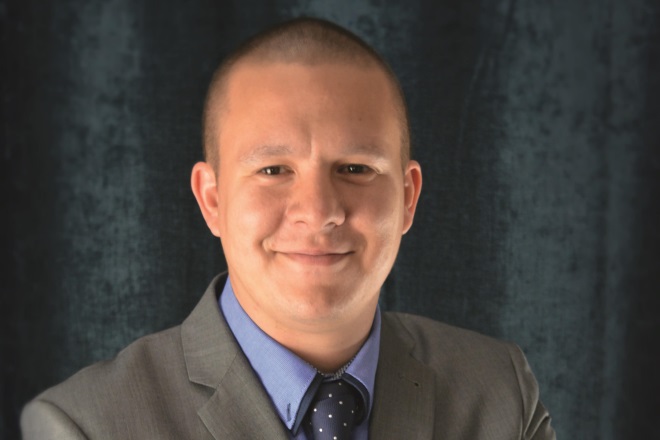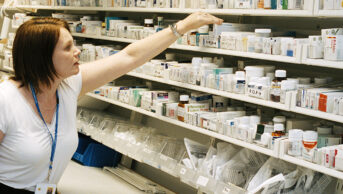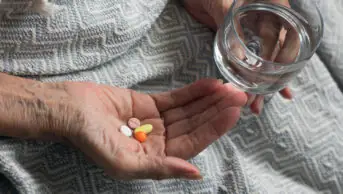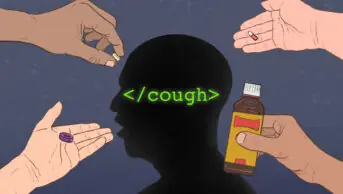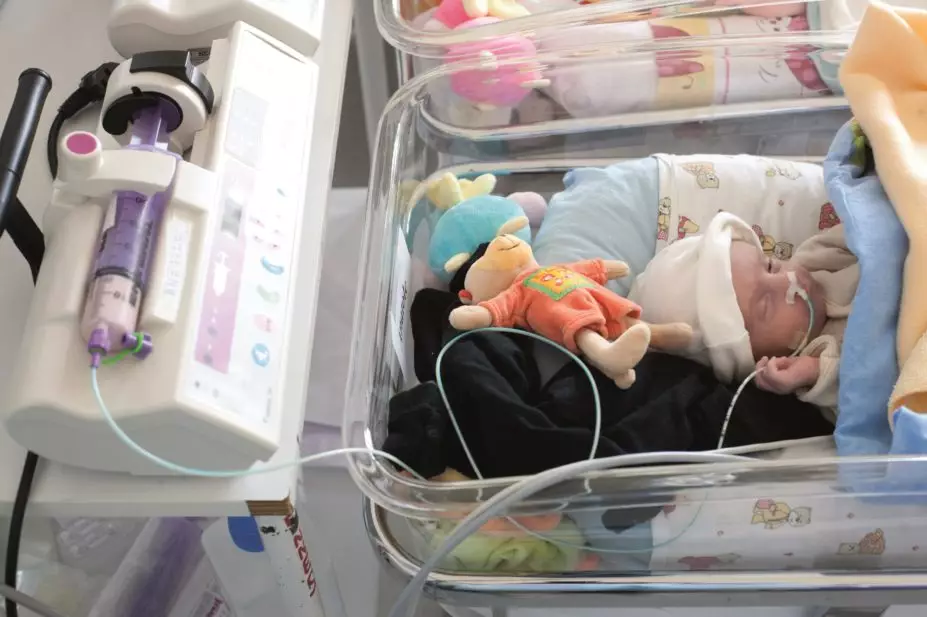
Phanie / Alamy Stock Photo
A tiny baby lies under harsh hospital lights. She was born prematurely, weighing just half a kilogram, and is supported by a parenteral nutrition bag made specifically for her complex needs.
Pharmacy technician Mike Howes made the bag in the manufacturing department of Gloucestershire Royal Hospital. His role is in technical services, an area of secondary care pharmacy somewhat less well known than the hospital dispensary.
The area of pharmacy technical services covers manufacturing, sometimes also known as preparative services, as well as quality assurance or control. Manufacturing itself covers three main areas: aseptics, production and radiopharmacy (see ‘What are pharmacy technical services?’).
What are pharmacy technical services?
- Aseptic dispensing and preparation: overseeing and maintaining the facilities used to prepare sterile medicines, including chemotherapy, total parenteral nutrition (TPN) and central intravenous additive services (CIVAS);
- Production: developing methods for the safe production of new medicines;
- Radiopharmacy: manufacturing and supplying radioactive substances used in nuclear medicine;
- Quality assurance and control: conducting a range of chemical and microbiological tests on medicines to ensure they are safe to use.
Source: Health Education England
Providing these services involves making and quality checking products for patients whose needs cannot be met by standard products from the hospital dispensary. Specialist products include chemotherapy, parenteral nutrition bags, morphine pump refills and rehydration fluids. This avoids the need to produce these items on the wards, helping to reduce the risk of infection to the patient and the hazards of chemicals to staff.
The sector is therefore vital to providing care to some of the most complicated patients — and it is having this knowledge that makes the job so worthwhile, says Howe. “You can have a real input into making a specific product from scratch for patients and know you are helping them with their treatment and recovery,” he adds.
Getting the staff
However, a 2013 pharmacy skill mix survey uncovered “an overwhelming concern around recruitment” into technical services, according to a paper written in February 2016 on behalf of the Royal Pharmaceutical Society and the National School of Healthcare Science.
In particular: 29% of NHS trusts surveyed identified a shortage of aseptic pharmacists; 35% felt that they had limited choice when it came to recruiting senior technical services pharmacists or managers; and 41% felt the choice was limited when it came to recruiting senior aseptic technicians.
One of the reasons for this was perhaps the lack of a clear path into the sector. “There’s some difficulty in recruiting people of a high calibre,” says Shazmeen Hansrod. “There’s no clear defined route into technical services.” Hansrod is one of the first beneficiaries of the work that has been done to try to solve this problem. In 2016, she will become part of the first cohort of graduates from a strand in Clinical Pharmaceutical Sciences (CPS) that has been added to the NHS’s Scientific Training Programme (STP). As a result, she will become a registered clinical scientist in pharmaceutical science and hopes to secure a role in her preferred sub-sector of radiopharmacy.
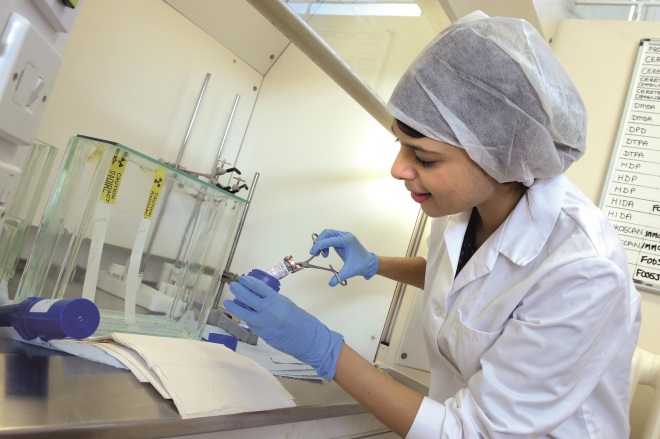
Source: Courtesy of Shazmeen Hansrod
Shazmeen Hansrod hopes to become a registered clinical scientist in pharmaceutical science and hopes to secure a role in radiopharmacy.
The programme is not only for pharmacy graduates or registered pharmacy professionals — Hansrod has a degree in pharmaceutical chemistry. But for pharmacists who are looking for a fresh career path, she points out that the three years of rotations across departments is a paid training post.
Technical services roles
Pharmacy technical services roles are great for those who like challenge and variety, adds Hansrod. Kevin Griffiths, principal pharmacist in sterile production at London’s Royal Free Hospital, agrees: “I like the variability of what we do.”
In 2015, the treatment of patients with Ebola at the Royal Free Hospital made world headlines. Griffiths’s team was presented with a solution of antibodies not suitable for human administration and — facing a dearth of information on treating Ebola — had to work out how to produce something safe and effective, thereby contributing to the successful discharge of those patients.
There is also an opportunity to work on clinical trials. This is particularly gratifying when you see something you have been involved with as a trial drug become a licensed medicine, explains David Lovett, principal pharmacist for aseptic services at Leicester Royal Infirmary.
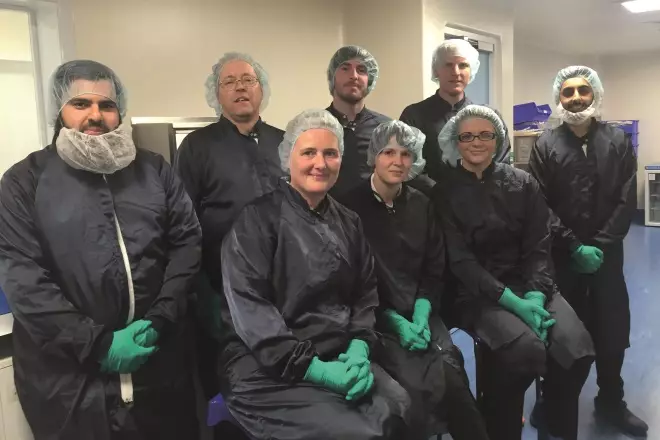
Courtesy of David Lovett
The NHS Pharmaceutical Aseptic Services Group at Leicester NHS Trust. Seated from left, Michelle Armstrong (team leader), Sarah Gunn & Holly Coltman (technicians). Standing from left, Mohammed Karolia (oncology trials pharmacist), David Lovett (principal pharmacist), James Maloy, Chris Hastings (technicians) and Suhail Abba (assistant)
Capacity of technical services teams
An increase in clinical trials work, as well as the increasing range of cancer treatments and life expectancy of cancer patients, means that the NHS is looking for ways to increase capacity in technical services. As chair of the NHS Pharmaceutical Aseptic Services Group, Lovett is involved in a national project to standardise doses for chemotherapy drugs to more easily enable batch production. This will mean that technical services teams can focus on treatments that require individualised doses.
The capacity issue means that many hospitals already buy in at least some technical services products, usually those of standard doses that can be batch-produced or have long stability, from commercial manufacturers. This represents another potential employment opportunity — although some people working in hospital-based roles view this outsourcing as a threat to their jobs. Howes says: “The outside companies are manufacturing a lot of stuff now that we can buy in cheaper than we can actually make it, so we have lost quite a lot of work over the past few years.”
Matthew Towner, aseptic technician at Watford General Hospital, agrees: “There’s a lot of private competition. We’re in an environment where management is always trying to reduce risk and cost.”
Courtesy of Matthew Towner
Aseptic technician Matthew Towner says that technical services are rewarding for individuals who enjoy being constantly challenged
Facing challenges
Technical services is not the place to get away from the financial pressures facing the NHS, as both Griffiths and Lovett point out. “A lot of the challenges we’re facing are much the same as the rest of the NHS: shortages of funding and staff, and how to be effective and do more with less,” Griffiths says.
And it is certainly not the place to get away from regulatory burden; pharmacists, technicians and trainees agree that keeping up with constantly changing standards is onerous. “Dealing with the regulations is always a challenge,” Griffiths says, adding that requirements from the Medicines and Healthcare products Regulatory Agency, the UK’s regulator of medicines and medical devices, never stand still. “We’re always having to raise the bar higher in terms of the standards we work to in order to meet those requirements.”
But — perhaps partly because of this constant change — working in technical services is the place to develop a wide range of skills. Howes says: “I always felt in the dispensary I was a robot but with manufacturing there are many different skills you get from it and different responsibilities.”
Development in the technical services roles
Progression involves taking on management roles, as Griffiths, Lovett, Howes and Towner have all found. Griffiths says: “My job, given that I have been doing this for a long time, is mostly management: the people, the staff, the unit, dealing with the regulations.”
Three personal attributes suited to a career in technical services
- Honesty and transparency: you need to be confident to report issues and mistakes, says aseptic technician Matthew Towner.
- Methodical and logical: do you thrive on data and facts? Then it’s for you, says Towner. Sterile production pharmacist Kevin Griffiths agrees: “You need to have a quite methodical mindset and pattern of working.”
- Attention to detail and professionalism: you will not necessarily be working under direct supervision but the quality and accuracy of what you do is critical so you must understand the gravity of that, says Towner. You must hold yourself accountable to high standards, he adds.
But there are other aspects to technical services to get stuck into that other pharmacy avenues do not offer, he adds. For example, as the deputy production manager for the whole Royal Free’s technical services department, Griffiths needs to understand the workings of complicated equipment — such as the air flow technology for the clean rooms in which aseptic preparation is conducted — so he can liaise with the engineers when something goes wrong.
“You’re more than just a pharmacist,” he explains. “I have to have a lot of knowledge and interest in the engineering side.”
Many people who work in pharmacy technical services believe they are making a difference. Towner explains: “We tend to be dealing with patients who are particularly vulnerable so it gives you satisfaction that the things you’re doing have such an impact on people’s lives.”
Howes sums it up with how he feels when he finds out that premature babies no longer have any need for his skills. “When you find out that, over time, those babies are on full feeds instead of nutrition bags and are healthy and doing well, you then feel contented for the family,” he says. “You also feel like you’ve done a good job and contributed towards their recovery alongside many other members of the NHS team. You have to work hard, it’s full on — but it’s satisfying.”
Consider a career in technical services if you:
- Enjoy structure
“We have various quality systems that we have to maintain so you need to have a mindset that’s able to work within that,” explains sterile production pharmacist Kevin Griffiths.
- Relish a challenge
‘Challenge’ is a common term used by those who work in the sector. Clinical pharmaceutical sciences trainee Shazmeen Hansrod says: “We’re always trying to improve services so the challenge is to keep up with the changes.” And aseptic technician Matthew Towner adds: “If you’re someone who’s happy to be challenged constantly then it’s rewarding.”
- Like to see your personal impact
“I am able to contribute to the department and implement changes to services,” says Hansrod. Production technician Mike Howes adds: “When I have made a product I am doing something for a patient who really needs it.”
Avoid a career in technical services if you:
- Hate paperwork
“Everything you do has to be documented, justified and reviewed,” says Towner. Howes gives an example: “I help generate the paperwork for the neonatal parenteral nutrition bags when we receive a prescription from the ward. This means I input data and the babies’ daily requirements of nutrition. On these administration sheets I write all the administration information for the nurses, including calculations and flow rates.”
- Dislike following procedures
Everything must be done to the same standard, says Towner, adding: “The monotony of it can be a challenge.” Griffiths explains: “Where you’re manufacturing and checking items you need to be checking those items off correctly following certain procedures and processes.”
- Enjoy close patient contact
“I don’t really have much face to face contact with patients — we work in a department that’s remote from the patients,” says Griffiths. “We have to bear in mind that everything we do has a patient at the end of it but we’re a bit more removed.”
- Wilt under pressure
“You have to get the work done, there’s no question about it,” says Howes. “We have to do the work because there are patients on the ward who are dying and you have to produce the products to meet their needs.”
Further information
- Health Education England provides information about a career in clinical pharmaceutical science (CPS): www.healthcareers.nhs.uk/explore-roles/physical-sciences-and-biomechanical-engineering/clinical-pharmaceutical-science
- Health Education England also provides an overview of the NHS Scientific Training Programme (STP): www.healthcareers.nhs.uk/i-am/considering-or-university/not-studying-health-related-degree/nhs-scientist-training-programme
- The NHS National School of Healthcare Science also provides information on the STP: www.nshcs.hee.nhs.uk/join-programme/nhs-scientist-training-programme
- The NHS Pharmaceutical Aseptic Services Group provides the latest news and guidance for members: www.pasg.nhs.uk/homepage
- The Technical Specialist Education and Training group supports NHS staff working in pharmacy technical services: www.tset.org.uk
Reading this article counts towards your CPD
You can use the following forms to record your learning and action points from this article from Pharmaceutical Journal Publications.
Your CPD module results are stored against your account here at The Pharmaceutical Journal. You must be registered and logged into the site to do this. To review your module results, go to the ‘My Account’ tab and then ‘My CPD’.
Any training, learning or development activities that you undertake for CPD can also be recorded as evidence as part of your RPS Faculty practice-based portfolio when preparing for Faculty membership. To start your RPS Faculty journey today, access the portfolio and tools at www.rpharms.com/Faculty
If your learning was planned in advance, please click:
If your learning was spontaneous, please click:
